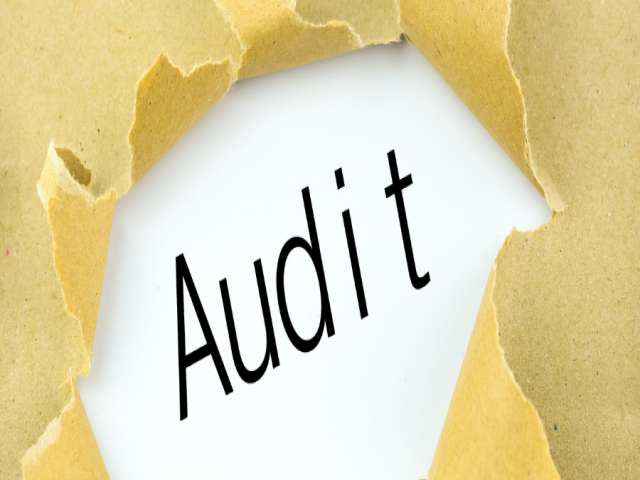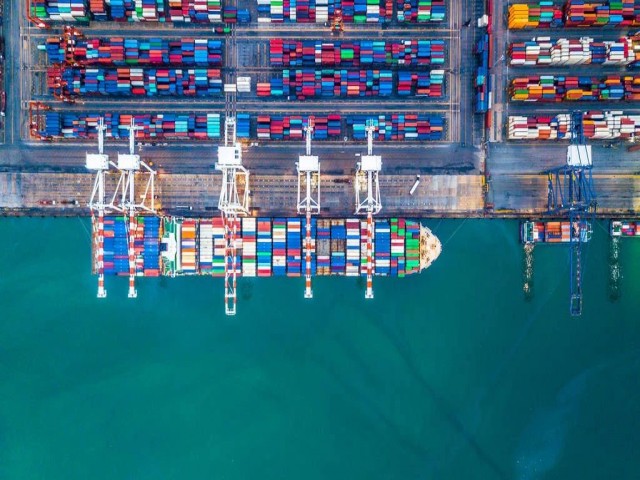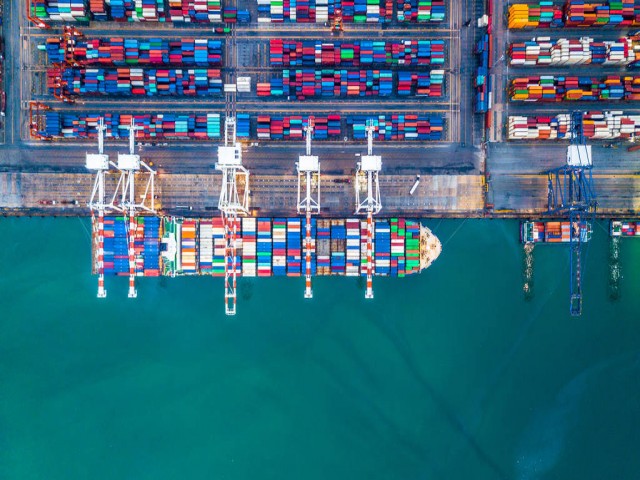Interpretation of the Export Control Law of China from the Perspective of National security and Interests
The Export Control Law of China (“Export Control Law”) was passed by voting in the Standing Committee of the National People's Congress of China on October 17, 2020, and it will come into effect on December 1, 2020. It is clearly reflected in the content of the Export Control Law and the revision process in its promulgation procedures that the legislative purpose of this law is to protect the national security and interests. This article interprets the Export Control Law from the perspective of protecting national security and interests.
1.Raising national security and interests to the primacy
Article 1 of the Export Control Law stipulates the legislative purpose of this law, which is “to safeguard national security and interests, perform non-proliferation and other international obligations, and enhance and regulate export control.” The wording of the legislative purpose in the first draft of the Export Control Law published in December 2019 was expressed as “to perform non-proliferation and other international obligations and to safeguard national security and interests”. In the second draft of the Export Control Law published in July 2020, the wording was adjusted, placing “safeguarding national security and interests” before “performing non-proliferation and other international obligations”. Compared with the second draft, the official version amends the word order in more articles, placing “safeguarding national security and interests” before “performing non-proliferation and other international obligations” in Articles 2, 9, 10, etc.. The purpose of the amendment is to be consistent with the wording of Article 1, and it also reflects that the primary purpose of this law is to safeguard national security and interests.
2.Lower threshold to trigger export control measures
In the second draft, the wording “national security and interests” only appears twice, respectively in Article 1 and Article 44, of which Article 44 refers to the legal responsibilities of foreign organizations and individuals. In other articles, such as the scope of controlled items (Article 2), temporary control measures (Article 9), the prohibition of export of the controlled items (Article 10), and the application for permission for items outside the list of controlled items (Article 12), control list of foreign importers and end-users (Article 19) and other articles, the wording is expressed as endangering or safeguarding “national security”. In the official version, the wording in these articles is modified to endanger or safeguard “national security and interests”. For example, in Article 12, when an export operator knows or should know that the exported items have a risk of "endangering national security and interests", they should apply for permission to the national export control administration. In the second draft, the requirement for the same application is that an export operator knows or should know “endangering national security” risk. In addition to the purpose of being consistent with the wording of Article 1, it also reflects the tendency of the legislators to set lower thresholds for triggering export control measures. According to the State Security Law of China, national security refers to a state where relevant national interests are free from danger and internal and external threats, as well as the ability to guarantee a continuous state of security. Endangering national security indicates that the severity of the situation has reached a certain level. The legislators of China may hold the opinion that the wording in previous versions is not sufficient for their intention. The national interests added to the Export Control Law does not require it has reached the level of endangering national security. Therefore, compared with the second draft, the threshold for triggering export control measures is lower.
In the official version of the Export Control Law, there is a newly added article of taking countermeasures against any country or region that abuses export-control measures and poses a threat to China's national security and interests, reflects the lower threshold for triggering export control measures. The export control measures adopted by a foreign country or region against China will not inevitably endanger China's national security, but based on the Export Control Law, China can directly take countermeasures. Since the concept of national interest covers a wide range, with the rise of international trade protectionism, the trade protection measures taken by other countries may be easily regarded as endangering China's national interests. Therefore, the China Export Control Law may be used in international trade disputes with other countries.
3.The scope of controlled items is highly flexible
Article 2 of the Export Control Law stipulates that this law applies to dual-use items, military items, nuclear and other goods, technologies, services, and items relating to the performance of anti-proliferation (“Controlled Items”). In the Export Control Law, there is a high degree of flexibility on the specific scope of Controlled Items, including three levels, control lists, temporary control measures, and other items subjected to risks. Article 4 of the Export Control Law stipulates that the China will manage through formulating control lists, directories or catalogs of Controlled Items (collectively referred to as “Control Lists”) and implementing export licenses. Regarding temporary control measures, Article 9(2) of the China Export Control Law stipulates that, as required by the needs of safeguarding national security and interests and performing international obligations such as non-proliferation and approved by the State Council and the Central Military Commission, the national export control administration may impose temporary control measures on goods, technologies and services not on the Control Lists and shall make an announcement. Regarding other items subjected to risks, Article 12(3) of the Export Control Law stipulates that, when export operators know or should know, or are notified by the national export control administration that relevant goods, technologies and services may have risks of endangering national security and interests, using in weapons of mass destruction, terrorism, etc., they should apply for permission from the national export control administration.
It shall pay special attention to the other items subjected to risks. On the one hand, the export operators are obliged to review the items to be exported. When they know or should know that there is a risk, they should apply for permission. On the other hand, as long as the national export control administration informs export operators that there may be risks, they should apply for permissions. There are no provisions on the detailed circumstances and procedures that national export control administration shall follow to make such notifications. The national export control administration does not need to prove that there is a definite risk. As long as there is a possibility of risk, they can issue such a notification. Therefore, the scope of Controlled Items is virtually open. To some extent, the national export control administration has the authority to take export control measures on any goods, technologies, and services. In addition, when the national export control administration does not approve the export application, according to Article 41 of the Export Control Law, it can only apply for administrative reconsideration, and the administrative reconsideration decision is the final decision. This means that export operators cannot file a lawsuit and the administrative agency has full power to decide whether to grant permission.
4.Management of foreign entities
The foreign entities involved in the Export Control Law include importers and end-users. Since the export of Controlled Items involves national security and interests, the Export Control Law provides for the following measures for the management of the condition of controlled items after export and the foreign entities involved:
(1) The end-user or the government agency of the country or region where the end-user is located shall issue the end-user and end-use certification documents, and the export operator shall submit the certification documents to the export control management department (Article 15);
(2) The end-user shall make a promise not to change the end-use of the relevant controlled items or transfer to any third party without permission. If an export operator or importer discovers that the end-user or end-use may change, it shall immediately report to the national export control administration (Article 16);
(3) The national export control administration establishes end-user and end-use risk management systems for controlled items to evaluate and verify the end-users and end-uses of controlled items and strengthen end-user and end-use management (Article 17);
(4) Establishing a control list of importers or end-users, and prohibiting or restrict transactions for importers or end-users included in the control list (Article 18);
(5) Holding the foreign entities liable for the violation of the Export Control Law (Article 44).
In summary, regarding the management of foreign entities, the Export Control Law provides pre-event (items (1) and (2) mentioned above), during-event (item (3) above), and after-event (items (4) and (5) above) measures to maximize the prevention of national security and interests from being damaged.
5.Export control and unreliable entities list
On September 19, 2020, the Ministry of Commerce of China promulgated the Provisions on the Unreliable Entities List, which is also related to export control. According to the Provisions on the Unreliable Entities List, when foreign entities (including foreign enterprises, organizations or individuals) are included in the list of unreliable entities, one of the measures that can be taken is to restrict or prohibit them from engaging in import and export activities related to China. Though the Provisions on the Unreliable Entities List is promulgated by a lower level authority, it may be more easily triggered and, accordingly, the foreign entities may be influenced more easily by it. Due to the US State Department’s approval of arms sales to Taiwan, a spokesperson in the Ministry of Foreign Affairs of China announced on October 26, 2020, that sanctions will be imposed on relevant entities, in which the list of unreliable entities may be applied.
Generally, the China Export Control Law and the Provisions on the Unreliable Entities List are applied to different scope, respectively aimed at specific foreign entities and controlled items. However, there is an overlap between the two systems. According to Article 18(2) of the China Export Control Law, foreign importers and end-users who may endanger the national security and interests of China will be included in a control list. The importers and end-users included in that control list will be prohibited or restricted or stopped from transactions of related Controlled Items. According to Article 2(1) of the Provisions on the Unreliable Entities List, related measures shall be taken against foreign entities that endanger China's national sovereignty, security, and development interests. Both of the two systems may take restrictive measures against specific foreign organizations or individuals, and the applicable conditions are similar, that is, endanger China's national security and interests.
Since both systems were promulgated and implemented in the background of the rise of trade protectionism and both of them are aimed at safeguarding national security and interest, there is an overlap on the applicable conditions of them when entities conduct a review of compliance for trading with China, both of the two systems shall be paid attention to.
In summary, the primary purpose of the China Export Control Law is to safeguard national security and interests. In terms of safeguarding national security and interests, the China Export Control Law inclines to expand the authority of administrative agencies, the administrative agencies have full power to determine the scope of Controlled Items and the implementation of control measures. With the rise of international trade protectionism, there may be more international trade disputes, and the uncertainty and political risks on export may increase.

















 沪公网安备 31010602001694号
沪公网安备 31010602001694号